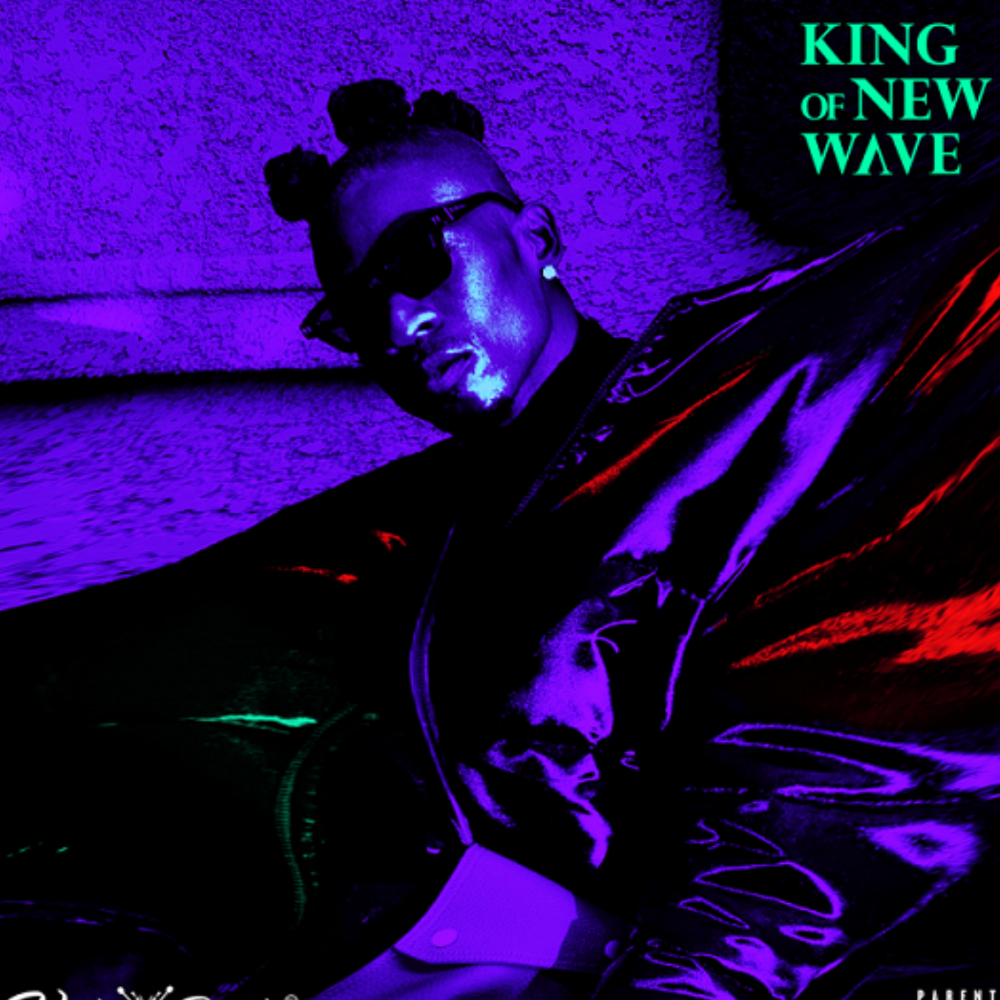
Essentials: Krizbeatz’s EP ‘King of New Wave’ Offers Fascinating Melodies
the Nigerian music producer returns with fine Afro-fusion tunes

the Nigerian music producer returns with fine Afro-fusion tunes
Following the overwhelming success of Tekno’s 2016 single “Pana,” which he produced, Krizbeatz cemented his place as one of the exciting music producers on the African continent. The following year, he released his debut album ‘Adm (Afro Dance Music),’ rallying an envious list of heavyweights such as Davido, Tekno, Yemi Alade, Mayorkun and Sauti Sol, among others. “In order to get global acceptance of my sound, I sort of created a new African music sub-genre called ‘Afro Dance Music.’ It’s the fusion of Afrobeats and Electronic Dance Music,” he told OkayAfrica.
In 2020, Krizbeatz put his sophomore project ‘African Time,’ which brimmed with stars the likes of Mr Eazi, Teni, Falz, Diamond Platnumz and many more. With a decade of experience in the music industry, Krizbeatz has orchestrated tunes for a wide range of artists, from Fave to BOJ to Bella Shmurda’s Omah Lay-assisted “Philo.” He has returned a new project titled ‘King of New Wave.’ Entirely produced by Krizbeatz, the six-track EP furthers his Pan-African sensibilities and musical mastery.
Embedded the project’s midsection is “King of New Wave (Interlude),” a spoken word track that states Krizbeatz’s intentions for the project. “Music transports my soul/It stretches deep and deeper/Through dark holes/Sometimes I get lost in it/Just to find myself again,” he begins with an introspective bent. Then he swings into boastful: “I am the sound/You hear me even when it’s dark/I got the wave/I’ll make sweet love to your ears that tingles your soul/I remain the king of new wave/I’ll adjust my crown/Follow me through my journey to newness.”
The EP opens with the brilliant “Abena” as Nigerian singer 1da Banton and Tanzanian singer Mbosso urge their love interests not to ignore their romantic outpourings. “Shey na crime to be your friend?/Tell what be my offence/You go soon turn me to psycho/Cause I done dey lose my mind oh/And I no fit to pretend,” 1da Banton sings. Krizbeatz’s production is intriguing factor in this tune; the guitar chords marry the horns and drums, resulting in a song with irresistible melodies.
On mid-tempo “Time & Place,” Nigerian acts Terri and Victony serenade their love interests with sweet words and promises of affection. “Girl, I go wait your body for days/No territory, go kolobe my base/No anybody go fit to hold your waist/No Teletubbies, me no come here to play,” Victony sings. Both singers with tender vocals, Terri and Victony succeed in Krizbeatz’s world of smooth-flowing instrumentals.
The tempo speeds up on “Wild Party” as Nigerian act Bella Shmurda and Tanzanian musician Rayvanny declare their interest in partying and having a good time. “We can turn up on a Friday/Chilling with Laide/Burning on the highway/Pass me the high grade/Make I feel high rate,” Bella Shmurda sings. Krizbeatz sets the track in Amapiano territory with the log drums setting the mood for happy times.
On “NFY (Not For You),” Krizbeatz calls on street pop adherents Jamopyper and Seyi Vibez to deliver a prayerful-cum-romantic cut. Jamopyper and Seyi Vibez show their good intentions for their lovers by declaring they won’t have any negative experiences on their watch. “Suffer gon (It’s not for you)/Wash and wear (It’s not for you)/RIP (It’s not for you),” Jamopyper sings.
It’s not an all-male affair on ‘King of New Wave.’ Nigerian acts Ladé and Raybekah take shots at their unserious suitors on “Time Waster.” It’s the track with the greatest emotional heft track on the EP. “Cause when I love, it’s for real/Sweet me tigaligali/And if you never ready to love me, let me know,” Ladé sings, showcasing her impressive vocal range. Raybekah adds her vocals to Ladé’s as both singers flit through Krizbeatz’s Amapiano-influenced production.
Overall, Krizbeatz’s ‘King of New Wave’ is an enjoyable sample of the music producer’s works, as he reminds listeners that he does not intend to slow down. His productions are getting better and tastier like fine wine.
Stream ‘King of New Wave’ here.
Featured image credits/

